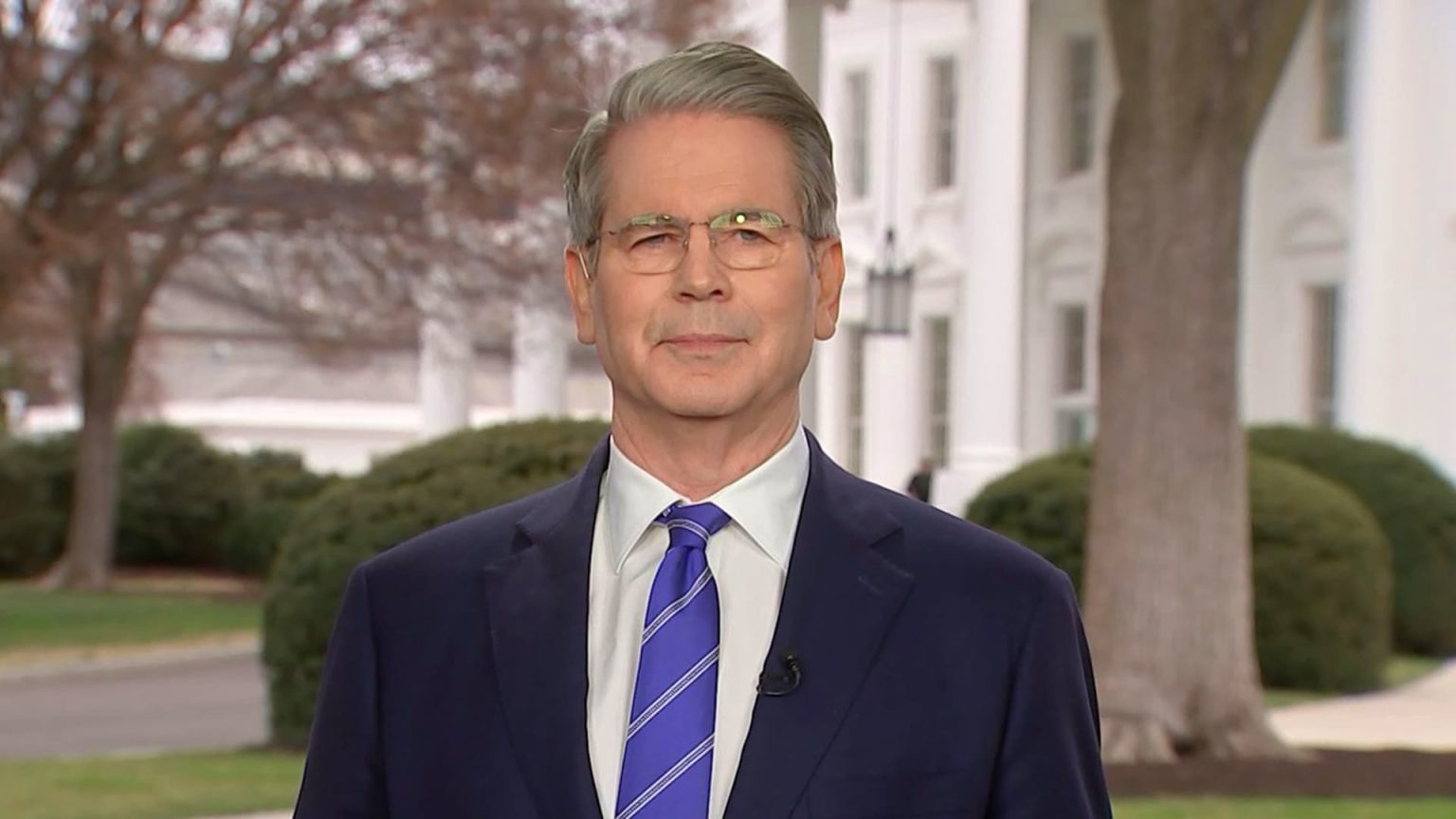Treasury Secretary Scott Bessent emphasized on March 13, 2025, the urgent need for the federal government to rein in its spending to avoid a looming financial crisis. During an appearance on NBC’s “Meet the Press,” he expressed concerns over the unsustainability of current fiscal policies while discussing President Donald Trump‘s initiatives to achieve governmental efficiency. As the February budget deficit surpassed the $1 trillion mark, Bessent cautioned that although the administration is making strides, economic stability is not guaranteed amid market turbulence exacerbated by tariffs and inflation fears.
| Article Subheadings |
|---|
| 1) Bessent’s Warning on Financial Crisis |
| 2) Trump’s Fiscal Policies and Government Efficiency |
| 3) Current Economic Indicators |
| 4) Outlook on the Market and Economic Growth |
| 5) The Role of Corrections in Financial Markets |
Bessent’s Warning on Financial Crisis
During a recent television interview, Treasury Secretary Scott Bessent specifically addressed the potential for a significant financial crisis as a direct consequence of increased government spending. Bessent remarked that the levels of spending observed over the past few years were unsustainable, emphasizing his expertise in economics. “What I could guarantee is we would have had a financial crisis. I’ve studied it, I’ve taught it, and if we had kept up at these spending levels that — everything was unsustainable,” he stated, highlighting the perils of continued fiscal irresponsibility. Bessent underscored the necessity of recalibrating economic policies to ensure a sustainable future.
Trump’s Fiscal Policies and Government Efficiency
President Donald Trump has placed a strong focus on improving the government’s fiscal situation since his inauguration. In his quest for efficiency, he established the Department of Government Efficiency, which is under the leadership of tech entrepreneur Elon Musk. This new department aims to implement job reductions and early retirement incentives across various federal agencies. Despite these moves aimed at fiscal responsibility, statistics reveal that the country’s debt and deficit situation deteriorated within Trump’s first month in office, resulting in a substantial budget shortfall that surpassed $1 trillion for February alone. This predicament raises questions about the effectiveness of the Trump administration’s strategies to rein in spending.
Current Economic Indicators
Bessent’s commentary comes at a time when the U.S. economy is facing notable challenges. The volatility of the stock market has intensified in recent weeks, largely due to Trump’s introduction of widespread tariffs, which have reignited concerns over inflation and an economic downturn. For example, the S&P 500 index recently recorded a sharp decline, falling into a 10% correction from its peak in February. This dramatic shift in market performance reflects broader anxieties about the sustainability of economic growth and the effectiveness of current policy measures. Moreover, Bessent reminded viewers that there are “no guarantees” regarding the risk of a recession, highlighting the unpredictability that often accompanies market fluctuations.
Outlook on the Market and Economic Growth
Despite the increasing uncertainty in the economy, Bessent maintains an optimistic outlook on the market’s potential for recovery and growth. He believes that while current pullbacks may appear alarming, they are typical corrections that can ultimately contribute to a healthier market environment. “I’ve been in the investment business for 35 years, and I can tell you that corrections are healthy. They’re normal,” stated Bessent. His assertion underscores His conviction that the administration’s pro-business policies will yield positive results in the long run, as long as they institute sound tax policies and prioritize deregulation and energy security. Bessent articulated, “I’m not worried about the markets. Over the long term, if we put good tax policy in place, deregulation and energy security, the markets will do great.”
The Role of Corrections in Financial Markets
Bessent’s remarks touch upon a critical aspect of financial markets: market corrections. He argued that frequent downturns serve to stabilize financial ecosystems by tempering euphoria and preventing unsustainable growth. “What’s not healthy is straight up, that you get these euphoric markets. That’s how you get a financial crisis,” he noted. His perspective suggests that market corrections provide vital opportunities for stakeholders to recalibrate their expectations and strategies. Acknowledging historical patterns, he pointed out that if proactive measures had been taken in 2006 and 2007, the economic collapse of 2008 might have been averted. Therefore, he advocates ongoing vigilance and market management to mitigate drastic financial crises in the future.
| No. | Key Points |
|---|---|
| 1 | Treasury Secretary Scott Bessent warned of a possible financial crisis due to unsustainable government spending. |
| 2 | President Donald Trump established a new Department of Government Efficiency to improve fiscal management. |
| 3 | The U.S. faced a budget shortfall exceeding $1 trillion in February, indicating serious debt issues. |
| 4 | Market volatility has increased with the introduction of tariffs, triggering fears of inflation. |
| 5 | Bessent believes that market corrections are essential for long-term stability and growth. |
Summary
The statements made by Treasury Secretary Scott Bessent highlight the complexities and challenges facing the U.S. economy today. The potential for a financial crisis looms due to excessive government spending, prompting a push for reforms under President Donald Trump. As market volatility continues, the government’s efforts to maintain fiscal discipline will be critical to ensuring long-term economic stability and growth. The insights provided by Bessent offer a cautious yet optimistic perspective about navigating today’s turbulent financial landscape.
Frequently Asked Questions
Question: What has Secretary Bessent stated about government spending?
Secretary Scott Bessent warned that current levels of government spending are unsustainable and pose a risk of a financial crisis.
Question: What is the purpose of the Department of Government Efficiency?
The Department of Government Efficiency was established to streamline government operations, reduce jobs, and implement early retirement initiatives to improve fiscal responsibility.
Question: How does Bessent view market corrections?
Bessent views market corrections as natural and beneficial, suggesting they help prevent more significant financial crises by tempering market exuberance.


